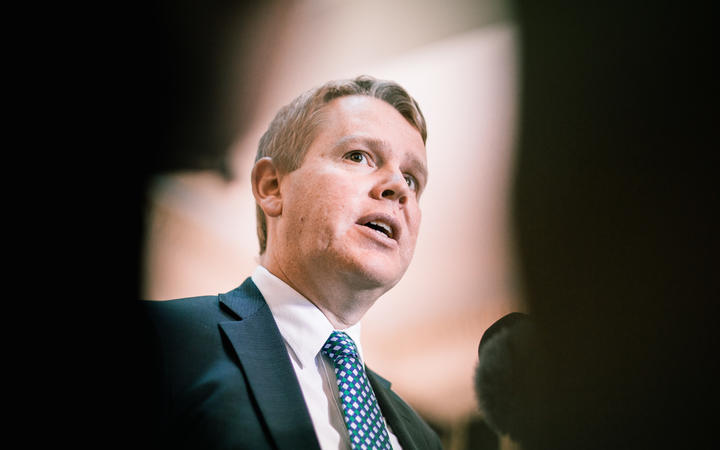
"I've always been pretty sceptical about the models," he told Newstalk ZB's Mike Hosking.
Questioned on earlier figures that up to 50,000 new cases would be emerging by Waitangi Day - and 80,000 a day a few weeks later - Hipkins described the calculations as useful, saying it was better to have some modelling than none.
"They are useful. It's better to have some modelling than no modelling. It's a little bit like the weather forecast. Some nights they say it's going to rain tomorrow and it turns out being a nice sunny day."
While those predictions came from the international Institute for Health Metrics and Evaluation (IHME), Hosking pointed out the Government was paying millions for local modelling. "Instead of six million (dollars), how about you give me one million, I'll model for you."
Hipkins said people wanted to have confidence that the Government was mindful of what the future might hold and prepare accordingly.
"I think people do want to see that the government is at least generally finding what evidence we can for what the potential scenarios might be so that we can be prepared for that."
On Rapid Antigen Tests, Hipkins said people couldn't buy them at the moment due to global supply issues. Even countries that had been making them more freely available were being a bit more restrictive, he said.
"I think the global supply chain will resolve itself and we will see a much greater number of them but at the moment they're in short supply."
He said it was important that the Government ensured RAT tests were available for those who needed them the most. "The priority for us is going to be making sure we've got tests available to those who need to test in order to return to work."
On Sir Ian Taylor and the Kudu Spectrum deal - to bring tens of millions of rapid antigen tests into New Zealand - the Covid Response minister described him as a "good, critical friend" of the government.
Hipkins said the businessman had been working closely with the Government over an alternate supply of rapid antigen tests and he appreciated that.
Hipkins said the Government now had nearly 200 million tests on order but some of those weren't expected to arrive until later in 2022.
He said on criticism levelled against the government by Sir Ian about identifying essential businesses, a set of criteria would be released detailing which workers needed to go to work and which businesses were regarded as critical.
Businesses would then assess themselves against the criteria.
Hipkins said these businesses would be eligible for rapid antigen tests. "Every business is essential but some are more essential than others in an environment where you've got a big surge of Covid-19 cases in the community," said the minister.
Asked if there was anything that could hold off opening the border to people from the rest of the world in October, Hipkins told TVNZ's Breakfast show that he could not say.
"Well, we're still in a global pandemic so I can't give guarantees about what might happen in six months' time."
Hipkins said officials would be monitoring the situation over the next few months still.
"We'll become more normalised as time goes on."
Hipkins said the Government did consider how waiting until October to open up borders could impact the tourism industry.
But he acknowledged that many of our tourists at the moment come from visa-waiver countries and could therefore come in from the middle of the year.
On MIQ, Hipkins acknowledged it had been very difficult for Kiwis trying to return home.
But he said those strict measures had helped to keep the number of Covid cases in the country down.
As a result, New Zealand had seen fewer Covid deaths and less time in lockdown in comparison with other countries.
Addressing concerns that Māori could be impacted more by opening up the border, Hipkins said there would be moves to encourage more Māori to get out and get vaccinated or boosted - including tamariki, he said.
Hipkins said he was due to speak with members of the Māori community about getting vaccinated.













